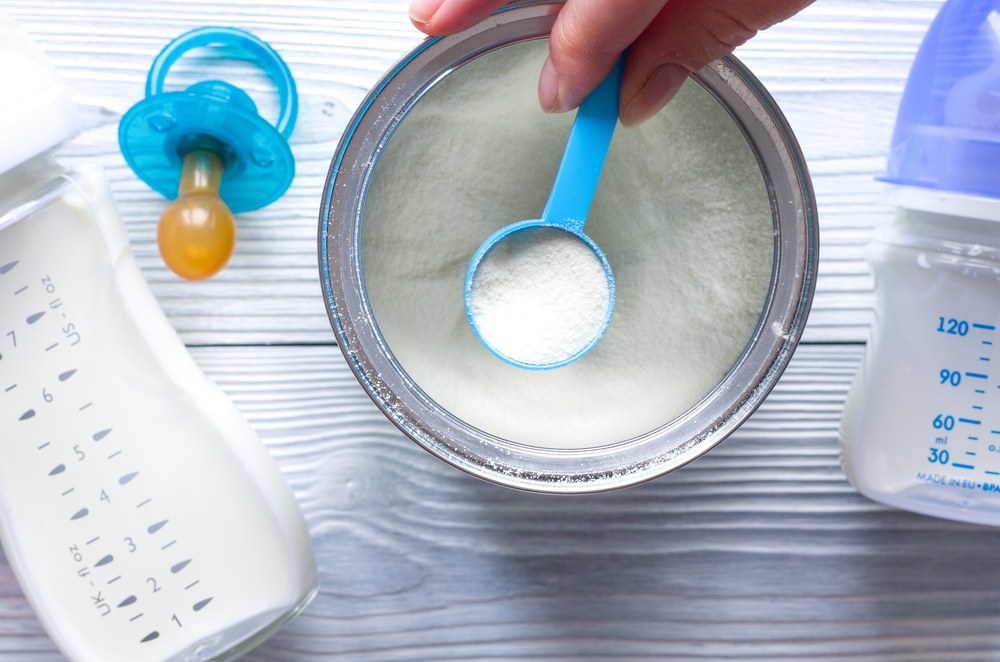Becoming a parent is one of the most emotional and life-altering events of your life. Making the right decisions about how and what to feed your new baby is crucial. Some parents choose to breastfeed their babies, while others opt to use baby formula. If you decide to formula-feed your baby, you need to know that sometimes these products are recalled due to safety issues.
On February 28, Abbott Nutrition recalled powdered baby formulas after bacterial infections were found in four infants who consumed them. All of the babies were hospitalized, and two of them died. This is in addition to another already-recalled Similac formula and two others, EleCare and Alimentum. These products are sold across the U.S. and exported to other countries. Only powdered baby formula is affected. Liquid infant formula has not been recalled.
Powdered Infant Formula Recall
The FDA is investigating the contaminated formula, which was manufactured at a single facility in Sturgis, Michigan. All four cases involved a bacteria called Cronobacter sakazakii. This bacteria can cause life-threatening infections such as sepsis and/or meningitis, an inflammation of the membranes responsible for protecting the spine and the brain. This type of infection is rare in newborns but life-threatening. Infants under two months old are most likely to develop meningitis after Cronobacter bacteria exposure. Premature infants and/or those with existing illnesses, who are less able to fight off germs and infection, are more susceptible to this bacteria.
Symptoms of Cronobacter sakazakii infection include abnormal body movements, grunting breaths, temperature changes, irritability and jaundice. If a baby is experiencing this type of infection, they will struggle to feed correctly. If you notice these symptoms in a baby, contact the child’s health care provider immediately and seek urgent medical attention.
What Infant Formulas Are Affected?
Recalled powdered infant formulas should no longer be available to purchase in stores. But if you have EleCare, Alimentum and Similac products in your home, check the lot code on the bottom of the container for the following:
- the first two digits of the code are 22 through 37
- the code on the container contains K8, SH or Z2
- the expiration date is 4-1-2022 (APR 2022) or later
If your formula is affected, please return the original container to the store where it was purchased to receive a refund. If you are unsure about your formula or need more information, visit Abbott Nutrition's recall website.
NEC Baby Formula Lawsuits
Roughly 10% of babies each year arrive before 37 weeks gestation. These nearly 380,000 premature infants, or “preemies,” may experience complications ranging from brain hemorrhages to breathing problems to gastrointestinal issues. They often require around-the-clock care in the neonatal intensive care unit, where they may be fed specialized baby formula specifically for preemies. Some premature infant formula has been linked to an increased risk of necrotizing enterocolitis (NEC).
Research showed that premature infants fed preemie formula made by popular brands Similac and Enfamil were twice as likely to contract this condition compared to preemies fed donor breast milk. Manufacturers, including Abbott Laboratories and Mead Johnson, face NEC baby formula lawsuits that allege that they failed to adequately warn parents and hospitals about the risks of NEC.
Infant formula manufacturers have a vital role to play in an infant’s life. When the risks of feeding formula to an infant are unclear or when a product recall is issued, there are legal avenues to explore that can hold manufacturers accountable for negligence. Babies can’t always tell their parents and caregivers when something is wrong. But as their parents and caregivers, you have the right to seek justice when your child’s life is at risk.










